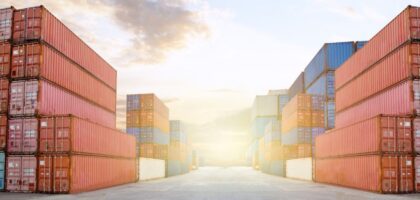Every election year brings a tide of change in both governance and various industries—and 2024 will be no different. The logistics industry has always been deeply influenced by the political landscape as a pivotal player to the global economy. The dynamic nature of elections (specifically an election year) can significantly impact the global supply chain, causing ripples that affect logistics operations, regulations, and even market reactions.
The intricate dance between politics and commerce can result in several actions, including regulatory changes, infrastructure development, technology and innovation enhancements, market volatility, and even consumer behavior.
Regulatory Adjustments and Policy Shifts
One of the most immediate impacts of an election year on logistics is the potential for regulatory adjustments and policy shifts. With new administrations come new visions and policies, which directly impacts trade agreements, tariffs, and transportation regulations that were previously set in place.
That comes as no surprise though, as the logistics industry has seen it time and time again with instances such as the termination of the North American Free Trade Agreement (NAFTA) in 2020 and the Section 301 China tariffs imposed on the country back in 2018. Alterations like these in international trade agreements directly influence import/export volumes, altering the flow of goods and the strategies that logistics companies must adopt to remain competitive.
Infrastructure Development
Election “promises” frequently revolve around infrastructure development, including transportation systems. Logistics heavily relies on a robust infrastructure to ensure the efficient movement of goods across the country. Therefore, elections can spark debates and subsequent actions pertaining to investments in roads, ports, railways, and airports. Whichever way it goes could have a significant impact on the efficiency of our infrastructure, either by reducing issues (such as transit times and operational costs) or opening the door to potential issues on crucial transportation routes.
Technology and Innovation
Political moves can also influence the direction of technological advancements within the logistics industry. New government policies and funding allocations will often encourage or hinder innovation leading to stagnancy. Depending on the political environment, investments in research and development of new technologies, such as autonomous vehicles, blockchain, or Internet of Things (IoT), may create fluctuations, ultimately impacting the industry’s future landscape.
Market Volatility and Consumer Behavior
The dynamics surrounding elections often lead to market volatility and impacts on consumer confidence and behavior. Uncertainty about the future can drastically influence spending patterns among consumers, affecting demand forecasting and inventory management. Businesses often handle this period by adjusting their logistics strategies to accommodate these fluctuations, either by scaling down operations temporarily or by diversifying their transportation and storage options. Logistics companies must adapt to these changes by being agile in managing these changes to meet fluctuating demand.
Navigating Through the Election Year ‘Uncertainty’
During the turbulence of election years, adaptability becomes the foundation of success in the logistics industry. The intersection of politics and commerce forces companies to swiftly adjust their strategies to a proactive approach in order to keep up with potential policy shifts, market fluctuations, and changing consumer behaviors.
During this time, maintaining open communication and fostering strong business relationships across the supply chain become crucial. Collaboration between logistics companies, suppliers, and clients can help mitigate risks and find innovative solutions to challenges arising from the election-induced modifications.
As the political pendulum swings, the logistics and supply chain sectors remain integral pillars of global commerce, evolving to meet the challenges and opportunities presented by each election cycle.



